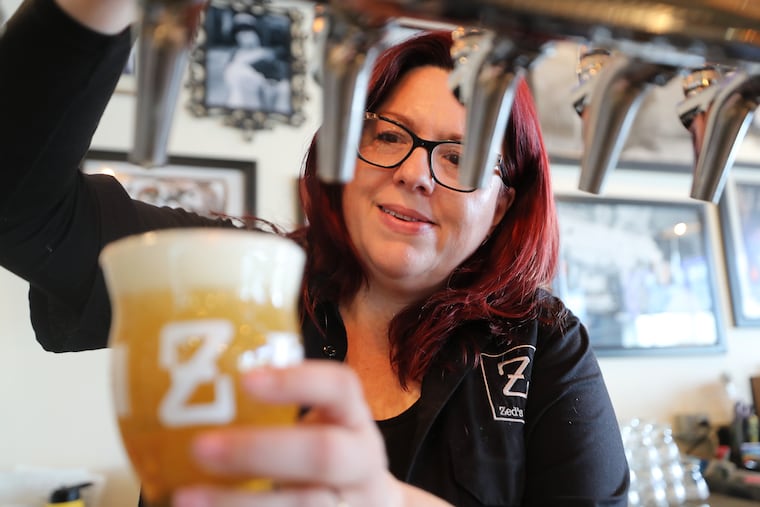Will ‘ridiculous’ N.J. brewery restrictions come back on New Year’s Day?
A reprieve through the year’s end was granted until Gov. Phil Murphy could sign a bill that eliminates the onerous rules. He vetoed it instead.

In June, the New Jersey Legislature unanimously passed a bill that would eliminate rules restricting how craft breweries could do business, a move celebrated with beer toasts throughout the state.
While everyone waited for Gov. Phil Murphy to sign the bill into law, breweries were granted a reprieve from following the rules from July until the end of the year. That meant being able to hold unlimited “special” events (trivia contests, fundraisers, open-mic nights, and the like), as well as being permitted to coordinate with food trucks so patrons could enjoy meals while drinking.
But on Nov. 27, Murphy — who had himself denigrated the brewery rules — conditionally vetoed the bill, saying he wanted to broaden the legislation to be used as a way to reform “antiquated” aspects of New Jersey liquor laws.
Now, it’s not clear what will happen to the bill. And brewery owners are worried that the suspended rules will be reapplied on Jan. 1. Neither state officials nor legislators have publicly addressed that.
“All of us breweries are holding our breath,” said Lori White, co-owner of Zed’s Beer in Marlton and president of the New Jersey Brewers Association. “We’re stuck as the pawns of New Jersey politics.”
Senate leaders said it’s unlikely that the brewery bill will be taken up during the postelection lame-duck session, which ends when the new state legislature is gaveled into session on Jan. 9. If that’s the case, a new bill will have to be introduced in the next legislative session. But brewery lobbyists aren’t optimistic.
“I’m not confident that next year or even in two years we could accomplish something like this again,” said Eric Orlando, executive director of the Brewers Guild of New Jersey. “We’re really up against it now.”
‘Ridiculous’ rules and possible changes
Along with limiting events and regulating food trucks, state rules stipulate that anyone entering a brewery for the first time must take a mandatory brewery tour. Kitchens aren’t permitted on the premises; neither is coffee or Coke. No more than two televisions are allowed, each not to exceed 65 inches.
“People say the rules can’t be as ridiculous as they sound,” White said. “They are.”
Such restrictions don’t apply in Pennsylvania. In one major difference, breweries can have kitchens. In fact, commonwealth law demands that food “sufficient to constitute breakfast, lunch, or dinner” be available in breweries, because drinking without eating hastens intoxication.
The New Jersey Division of Alcoholic Beverage Control (ABC) initiated the regulations based on 2012 state legislation that labeled brewers as manufacturers with beer-tasting rooms — not bars. The idea was to nurture breweries without siphoning business from bars and restaurants that pay $500,000 or more for liquor licenses. Brewer manufacturer licenses run from around $1,250 to $7,500.
Referencing the brewery bill, Murphy said in a statement last month, “I applaud the sponsors of this legislation for recognizing the need to afford additional privileges to our craft alcohol industries.” But, he added, “I believe that this legislation, standing alone, does not sufficiently enhance our antiquated liquor license laws.”
Murphy wants the bill revised to mandate businesses that hold “pocket licenses” — liquor licenses currently not in use — to relinquish them if they aren’t used within eight years of the bill’s enactment.
There are roughly 1,385 pocket licenses throughout the state, ABC statistics show. Murphy aims to get the unused licenses back on the market to generate revenue and jobs.
Another condition Murphy wants included in any legislation is to allow malls of 500,000 feet or larger permission to sell alcohol in food courts.
Neither the state attorney general’s office, which oversees the ABC, nor the New Jersey Licensed Beverage Association, which represents bars, taverns, and restaurants with liquor licenses, responded to requests for comment.